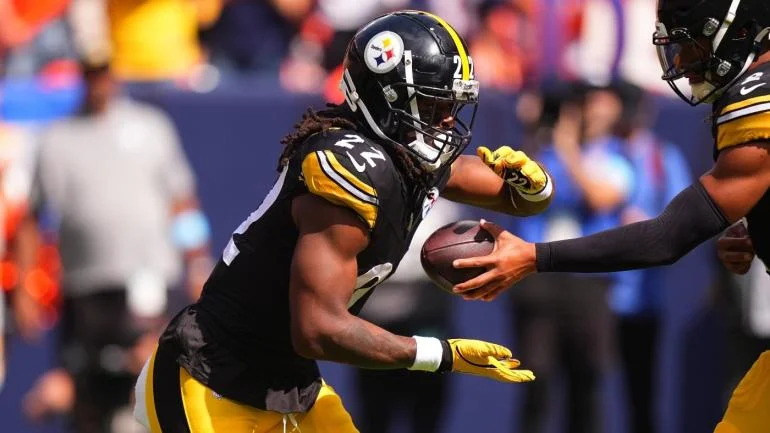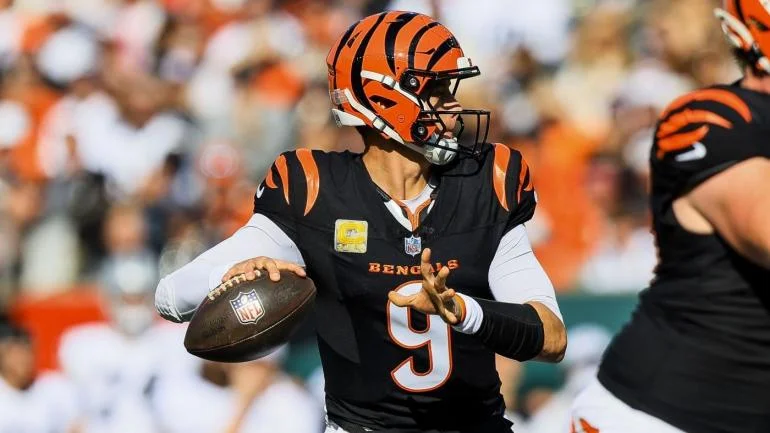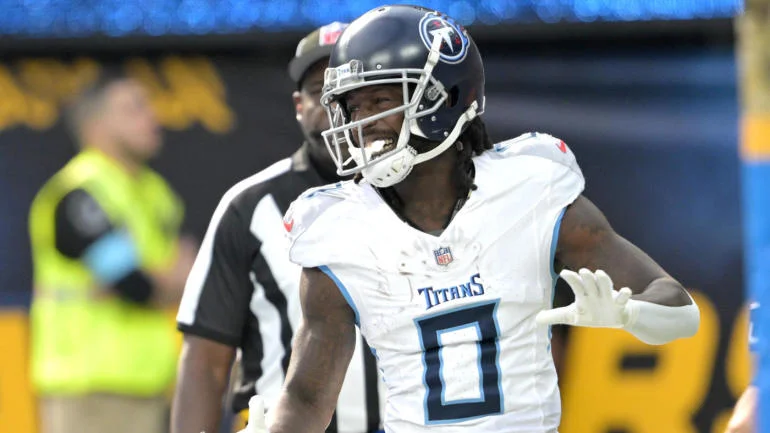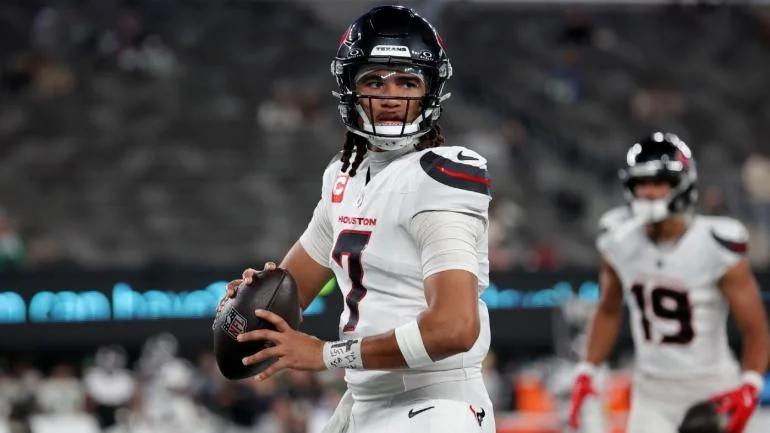Despites threats he’d stay in school, Josh Rosen is in this year’s draft.
Jump on in, boys, the water is warm! Josh Rosen is in (of course). Sam Darnold is in! Josh Allen is in! Lamar Jackson is in! All these underclassmen are jumping into the draft pool now, knowing that they all have a good shot to be first-round picks.
It wouldn’t shock me to see 5 first-round QBs this year, which will inevitably bring up comparisons to some of the great classes of all-time. However, this crop will stand out from the pack in a key and important way. This QB class will be one of the youngest ever.
Contrast the 2018 class with another great one: back in 2004 when Eli Manning, Philip Rivers, Ben Roethlisberger (and JP Losman!) all went in the first round. In a previous post, I mentioned how rare that class was, because of its experience. All of the top three QBs were what I’d label 3+1 starters; that is, quarterbacks who started for three seasons in college and had an additional year there (either as a starter, backup or even as a redshirt.)
Among the top five prospects this year, only Baker Mayfield will be a 3+1 QB. In fact, many of these quarterbacks are incredibly young as well. At the moment, Lamar Jackson, Josh Rosen, and Sam Darnold are all 20 years old. (Although Jackson turns 21 over the weekend.)
Why does that matter? Well, we tend to think of “inexperienced” quarterbacks as ones who didn’t start much in college, a la Mitchell Trubisky. And hey, that’s a genuine concern as well. But there’s also a concern for quarterbacks who are simply young, whether they started for 3 years in college or not. Quite frankly, the history of 21-year-old rookie QBs is troubling. Let’s take a look back through the 2000s and test that theory across said young’ins.
The struggles of (especially) young rookie QBs
Michael Vick, 2001: After being the # 1 pick as a redshirt sophomore, Michael Vick didn’t look ready for the position at all as a rookie, completing just 44.2% of his passes in limited time (113 pass attempts.) He’d break out as an electric superstar by his sophomore year, but never quite got the hang of pocket passing. Was that because of him declaring early? Probably not. Was his off-the-field immaturity the result of him declaring early? Probably not. But the point here is merely: he struggled badly as a rookie.
Alex Smith, 2005: Drafted as a 20-year-old, the bright young kid out of Utah looked completely lost as a rookie, producing one of the worst seasons in recent memory. 1 TD pass, 11 interceptions, and NINE fumbles. He’d eventually right the ship, but it took even longer in his case: not until season 6.
Matt Stafford, 2009: The Bulldog and fated # 1 pick has lived up to that billing, but it didn’t come overnight. He struggled as a rookie with 13 TDs, 20 ints, and a 61.0 QB rating (37.0 QBR). In fact, many people doubted Stafford’s ability to hold up as a franchise QB because of inconsistency and injuries until his third season in the league.
Josh Freeman, 2009: A raw talent from Kansas State, Freeman predictably struggled as a rookie (10 TDs, 18 ints, 6 fumbles). He’d have some solid seasons from there (2010, 2012) but was largely inconsistent and had his own off-the-field issues that contributed to that.
Blaine Gabbert, 2011: Despite modest college numbers, Blaine Gabbert still looked the part of a franchise NFL QB. However, he wasn’t ready for the big stage either. His raw numbers were okay (12 TDs, 14 int) but digging deeper he struggled quite a bit with a 50.8% completion percentage, 65.4 QB rating (22.1 QBR). He also took 40 sacks in just 413 pass attempts. Either that punishment scarred him for life and made him shaky in the pocket, or simply illustrated a flaw that would have been there regardless.
Johnny Manziel, 2014: After a great college career, Johnny Football was supposed to light the NFL on fire. He lit his career on fire instead. His struggles as a rookie (a 42.0 QB rating and 07.3 QBR in very limited time) were predictable, but he flamed out more quickly than any of us would have expected. Again, off-the-field issues and immaturity were an issue here.
Jameis Winston, 2015: Hey now, we’re turning this up a notch. Famous Jameis actually had a great rookie season by any standards, tossing for 22 TDs against 15 interceptions with a decent 58.8% completion percentage.
Jared Goff, 2016: Okay back to our regularly scheduled programming. Despite sitting on the shelf for half a season, Goff looked completely lost when he did play, tossing for 5 touchdowns against 7 interceptions (with 5 fumbles) for an awful 63.6 QB rating (18.9 QBR). Jeff Fisher‘s offense didn’t help matters, but it’s clear that Goff may not have been ready yet.
Deshaun Watson, 2017: Like Jameis Winston, Deshaun Watson took his title pedigree and translated that to the NFL right away. He looked spectacular early on with 19 TDs and 8 ints prior to his injury.
DeShone Kizer, 2017: There were bright spots here and there for Kizer this season, but largely he looked overwhelmed and lost. 53.6% completion, 11 TDs, 22 ints, with a QB rating of 60.5 and a QBR of 26.7 that were both in the bottom of the league among starters.
Note: if I missed a rookie QB in there, let me know. I tried to “catch ’em all” but there may have been one or two that slipped through the cracks; if so, it wasn’t intentional.
Why this matters
There’s an obvious counter to this sample size. Sure, these rookie QBs struggled, but all rookie QBs struggle. Even a college vet like Peyton Manning threw 28 interceptions as a rookie. However, the point is: super-young rookie QBs struggle even more than their counterparts, and sometimes in spectacular fashion.
And in a way, that’s okay. If they’re good enough and in a good enough system, they should be able to right the ship from there. However, my only point with this is: teams that draft (and start) the super-young rookie need to understand this learning curve and exercise proper patience.
Take DeShone Kizer for example. I was never a huge fan of his in the draft, but he was set up for failure in Cleveland. Tossed to the sharks right away. And when he struggled (as you’d expect), the Browns decided he wasn’t worth the development all along and want to cast him aside? In a sense, that’s not fair to him, and it’s not a smart way to run your organization.
In fact, the teams that draft these super-young rookies should consider keeping them on the shelf as long as possible. The N.Y. Giants at # 2 feel like a great situation for them, as they can hopefully sit on the bench for a year and develop behind Eli Manning before taking over the reins in 2018. However, if a team decides to throw out Josh Rosen, or Sam Darnold, or Lamar Jackson early, we can expect them to struggle quite a bit in 2018.




